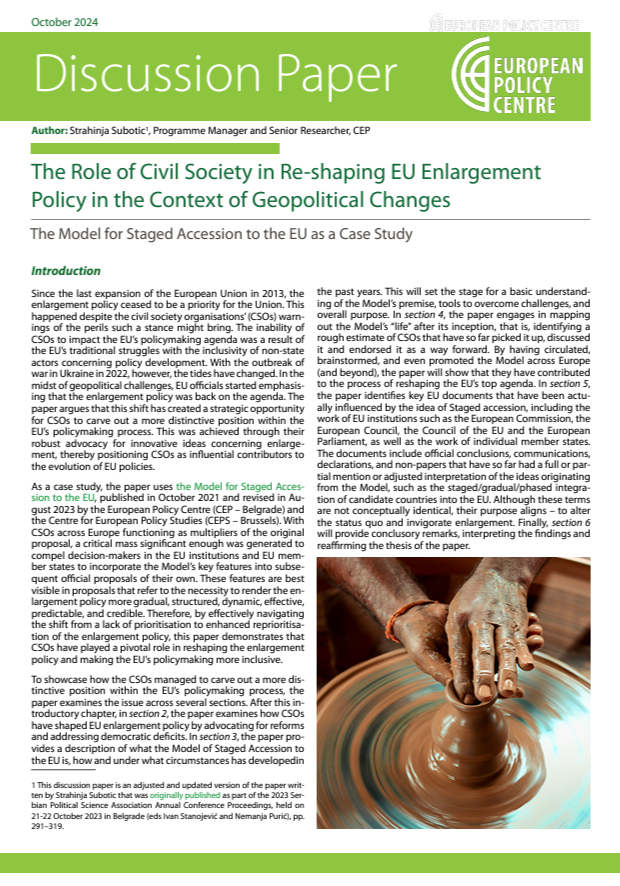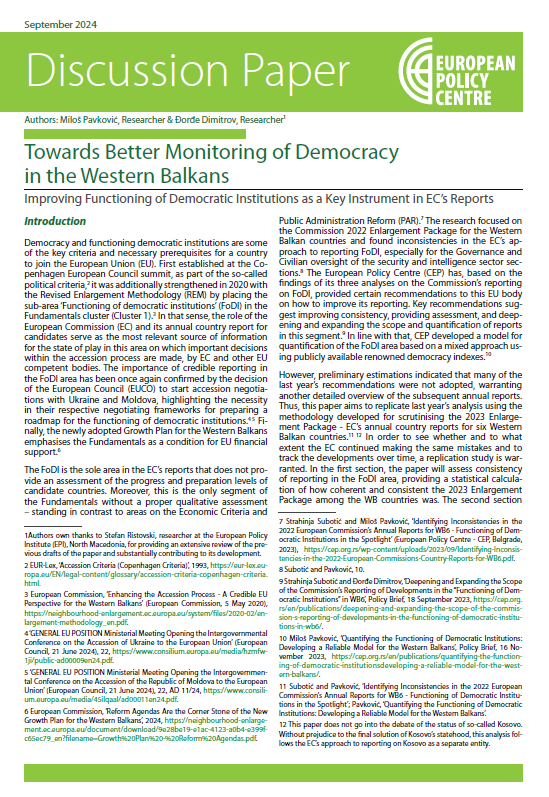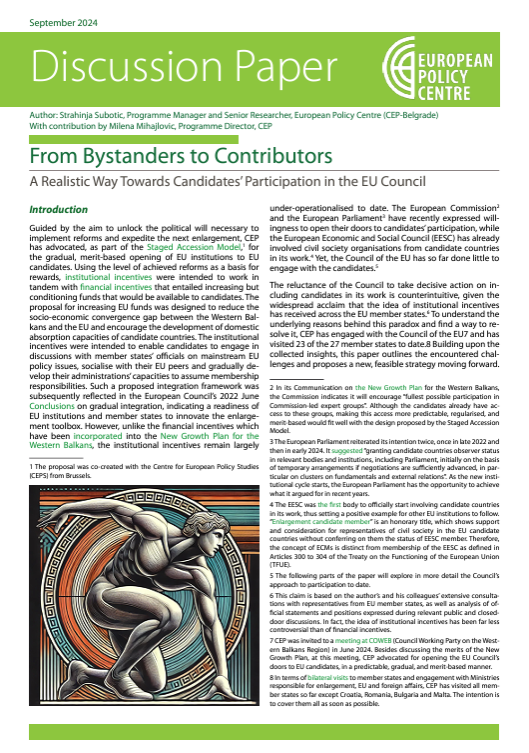Headquarters: Svetog Nauma 7, 11000
Office address: Đorđa Vajferta 13, 11000
Phone:: +381 11 4529 323
The Template for Staged Accession to the EU was first published in the autumn of 2021, following the European Commission’s publication of the revised enlargement methodology and the persistently stagnating accession process of the Western Balkan countries. The necessity to adapt EU enlargement policy has become ever more pronounced since Russia’s full-scale invasion of Ukraine. The geopolitical imperative for EU enlargement has prompted numerous proposals but ‘Staged Accession’ remains the only model which provides a predictable way forward for all present and future membership candidates in parallel with internal reforms aimed at smooth functioning of an enlarged EU.
Emerging from wide-ranging consultations and a series of issue papers that delved into the specific elements of the Model, this revised Template 2.0 presents a comprehensive proposal on how to amend the EU’s current accession policy. It presents the overall structure of the Staged Accession Model, with new specifications on the EU’s ‘fundamentals first’ approach. It lays out the ‘essential elements’ of the proposal, which the authors consider the bare minimum a new enlargement policy revision would need to entail to achieve the Model’s objectives. It unpacks the two pre-accession stages and the benefits of gradual institutional participation as well as increased funding proposed to (potential) candidates as incentives to press on with the most difficult fundamental reforms. The EU needs to use the momentum carefully to ensure that candidates go through a merit-based and predictable process, which will guarantee more reforms are rewarded with more benefits, while stagnation and backsliding are met with appropriate measures and reversibility in the integration process. The special arrangements of the Stage 3 ‘New Member State’ regime are detailed as well as the transition into the fourth and final stage envisaging conventional EU membership. Ideas on advanced sectoral integration (i.e. vertical ‘phasing-in’) and their possible relationship with the horizontal approach of the Staged Accession Model are also analysed.
Finally, the paper reviews the proposals for innovating the overall governance of the EU’s enlargement policy. Template 2.0 concludes by making important recommendations to the EU institutions, Member States and candidates that ought to be considered if the EU is to avoid missing another chance to restore the credibility and effectiveness of its once most successful foreign policy. Such proposals should be advanced in October 2023, at the latest, as part of the Commission’s next ‘Enlargement Package,’ with a view to agreement at the European Council’s December 2023 meeting.


